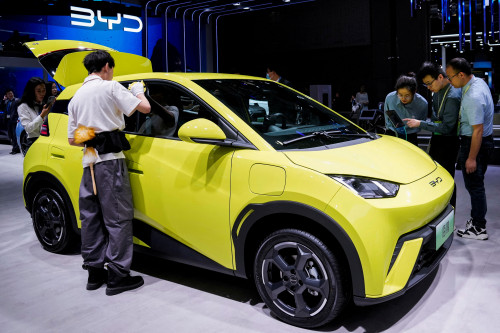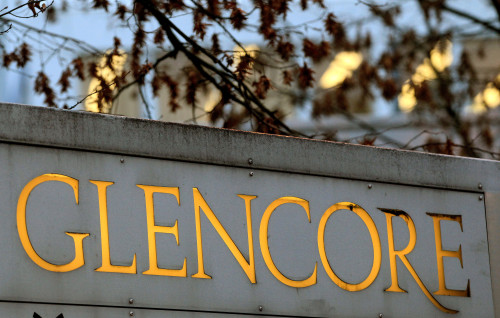SHANGHAI (Reuters) -Shares in Chinese automakers such as BYD, Nio and Geely tumbled on Monday after industry leader BYD offered fresh incentives on over 20 models and the CEO of Great Wall Motors warned that the world’s largest auto industry was in an unhealthy state.
The Hong Kong-listed shares of BYD Co Ltd closed 8.6% lower, while Geely Auto fell 9.5%. Others, such as Nio and Leapmotor, closed between 3% and 8.5% lower.
A years-long price war in the world’s largest automotive market has only continued to intensify, with carmakers continuing to cut prices and offer features previously perceived as premium, such as smart assisted driving, for free.
Chinese electric vehicle giant BYD over the weekend announced a fresh round of subsidies and incentives for more than 20 models, which reduced the starting price of its cheapest model, the pure battery-powered Seagull hatchback, to 55,800 yuan ($7,765).
Customers have to trade-in their old cars to get the subsidies, a customer service officer told Reuters. Geely followed suit with similar incentives on Monday.
On Friday, Wei Jianjun, the chairman of Great Wall Motor, warned that the Chinese auto industry had its own “Evergrande”, referring to the debt-laden developer that became the centre of a liquidity crisis in China’s property sector.
“Now, Evergrande in the automobile industry already exists, but it has not collapsed,” he told Sina Finance in an interview.
He did not name any automakers but said some of the “main manufacturers” in China had put too much effort into pursuing market value and raising their stock prices.
Wei, one of the Chinese industry’s most outspoken company chiefs, said that the Chinese electric vehicle industry was in an unhealthy state given its heavy losses and how a prolonged price war was weighing on the supply chain.
Suppliers were struggling to survive, he added, due to a ongoing pressure to lower prices and delayed payments, and accused carmakers of cutting corners on safety and reliability.
“Some products have been reduced from 220,000 yuan to 120,000 yuan in the past few years. What kind of industrial products can be reduced by 100,000 yuan and still have quality assurance? Well this is absolutely impossible,” he said, again not naming any companies.
Last week, China’s state planner warned against excessive competition in some industries, saying that some firms were even selling below cost, disrupting fair competition and warned that it may take corrective action.
($1 = 7.1866 Chinese yuan renminbi)
(Reporting by Brenda Goh, Qiaoyi Li and Zhang Yan. Editing by Mark Potter)






